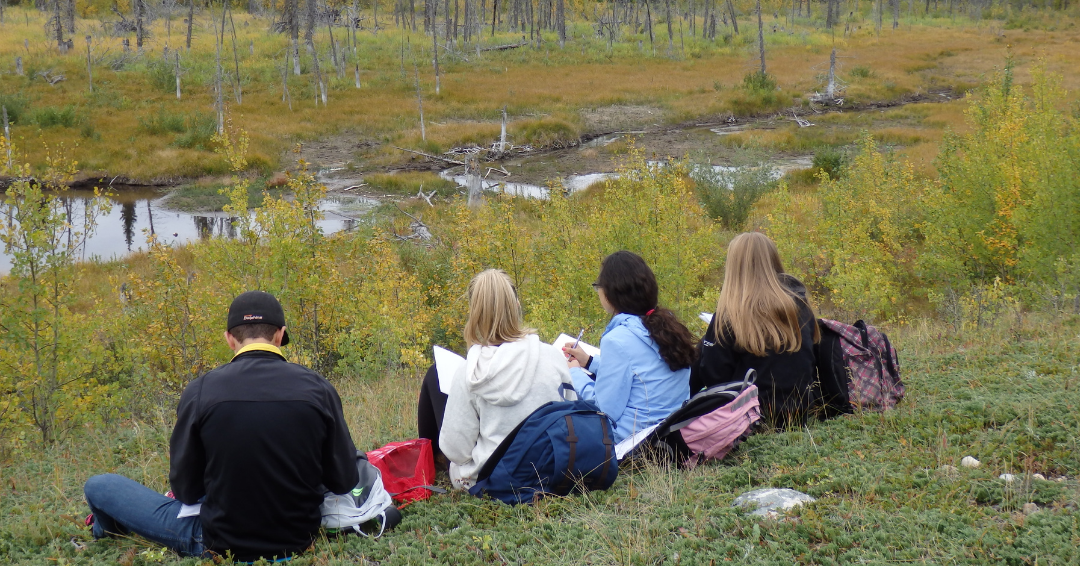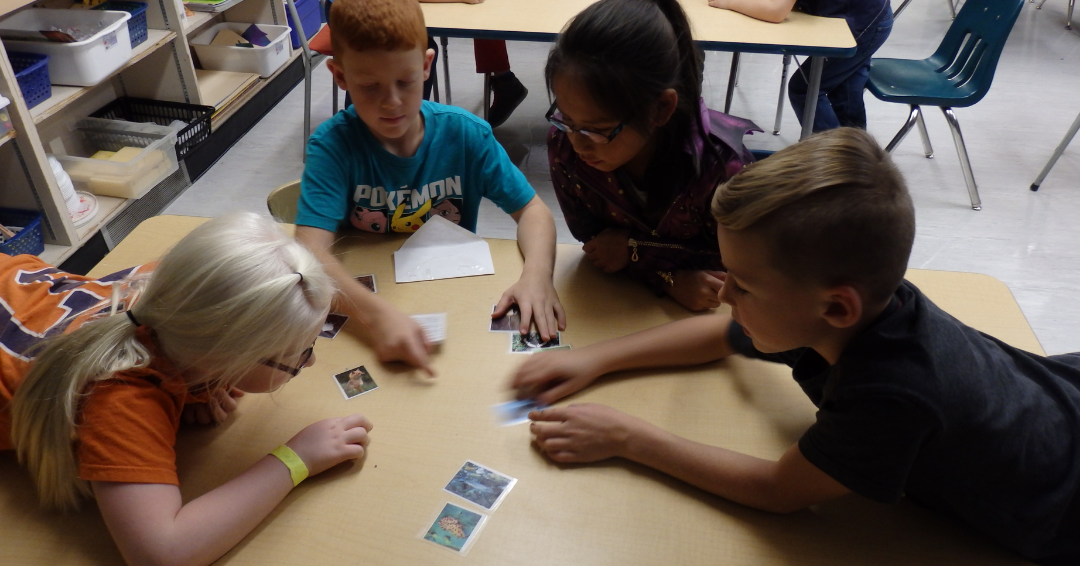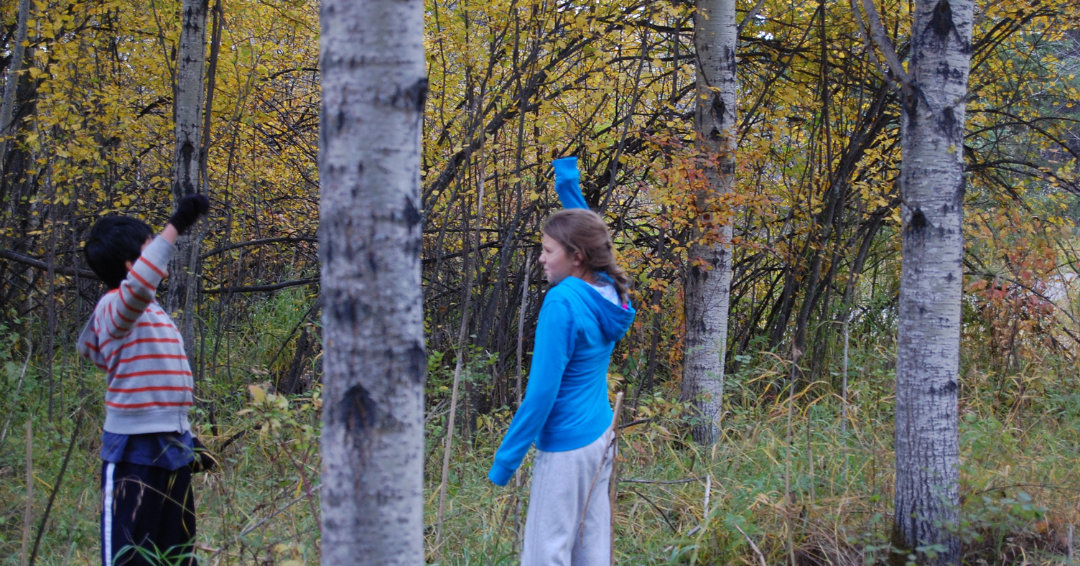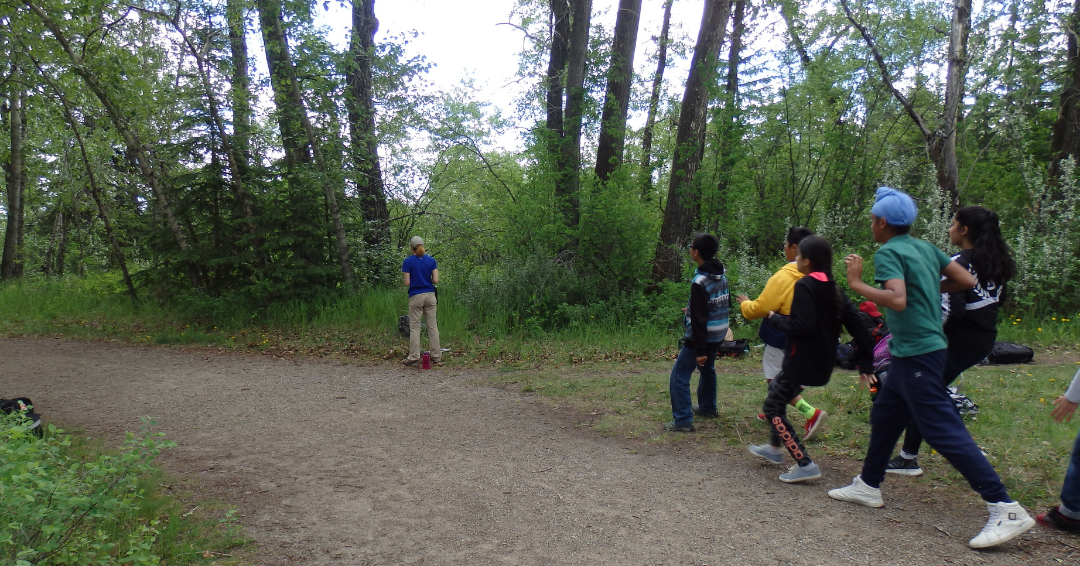Listen to stories from the river and create your own unique poem.
PURPOSE
In this poetry activity, participants will listen to “Stories from the River” told by Indigenous scientists, conservationists, anglers, ranchers, recreationalists, and naturalists. While listening to the stories, the youth will jot down words that stick out to them to turn into poetry. While engaged in story listening and telling, participants will learn about native trout, trout habitat, and conservation initiatives.
RECOMMENDED GRADES
Grades 3-12
TIME NEEDED
30-60 minutes

Curriculum CONNECTIONS
Text Forms and Structures (Grade 3-6)
English Language Arts — General Outcome 2.2 (Grade 7-9)
General Outcome 1.1.2 — Experiment with language, image and structure (Grade 10-12)
English Language Arts — General Outcome 2.2 (Grade 7-9)
General Outcome 1.1.2 — Experiment with language, image and structure (Grade 10-12)
MATERIALS NEEDED
Laptops or AV equipment to watch “Stories from the River”
Notebooks/paper
Pencils
Notebooks/paper
Pencils
Instructions
- As a group, watch Angling with Kaith Palmaria — Stories From the River. Alternatively, assign individuals, pairs, or small groups to each of the seven Stories From the River videos.
- As you watch (either the first or second time), ask participants to jot down words and short phrases that stick out or interest them. Gather a list of at least 10 words. If needed, watch the video multiple times to solidify the word lists of participants.
- Using their unique word lists, ask participants to create a poem. They can add more words to connect everything together. Try some of these poem types, or whatever you are working on in class:
A: List Poem (“A Trout is…” , “A river is…” and list words to fill in the blank.
B: 5 senses Poem (1 line for each sense)
C: Alphabet Poem – 1 line for each letter
D: Acrostic Poem – 1 line for each letter of a word such as BULL TROUT or RIVER
E: Haiku (5/7/5 Syllables)
- Share your poems with the group. If it is a nice day, have a poetry reading outside!
Discussion:
- Ask participants why they chose the words they chose.
- How did it feel to turn the words into poetry?
- How did it feel to listen to your peers’ poems?
- What did you learn from the video and the poetry?
Extensions:
- Use your word list to write a short story instead of a poem.
- Illustrate your poems/stories.
- Share your poems, stories, and illustrations with the Alberta Native Trout Collaborative!
Detailed Curriculum Connection
Pair This Activity With
See All Native Trout Activities
This activity is courtesy of the
Alberta Native Trout Collaborative

Learn more at albernativetrout.com



